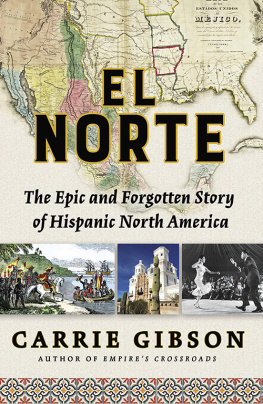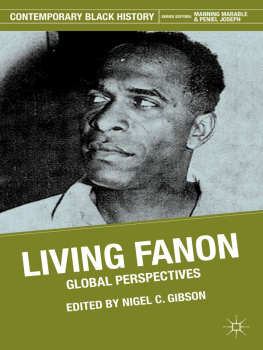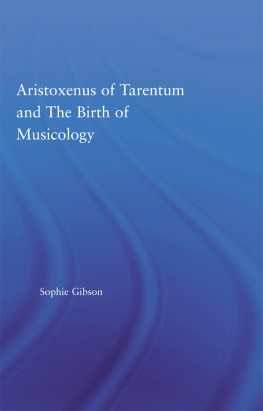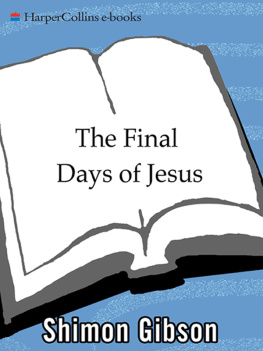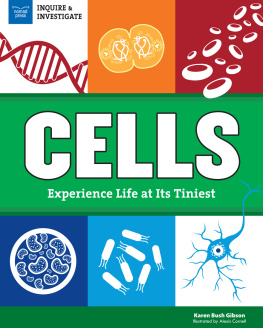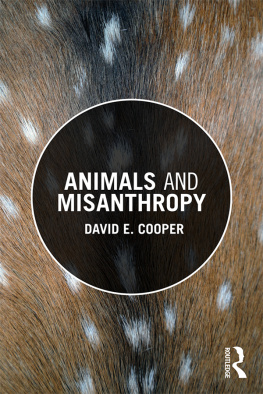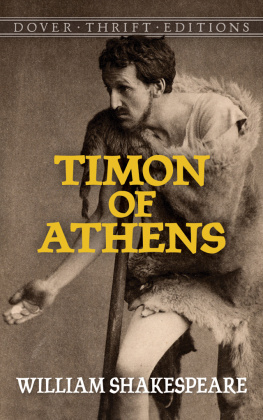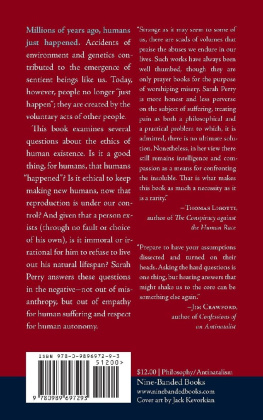MISANTHROPY
ALSO AVAILABLE FROM BLOOMSBURY
Autarchies, David Ashford
Intimacy, Christopher Lauer
Judged, Ziyad Marar
How to Be a Philosopher, Gary Cox
How to Be an Existentialist, Gary Cox
Waste, William Viney
Worrying, Francis OGorman
To all my family, friends and mentors
I heartily love John, Peter, Thomas, and so forth.
MISANTHROPY
The Critique of Humanity
ANDREW GIBSON
Bloomsbury Academic
An imprint of Bloomsbury Publishing Plc

And now I think you see what would become of the world if all men should be wise; to wit it were necessary we got another kind of clay and some better potter.
(ERASMUS, In Praise of Folly , trans. John Wilson, 1668)
Respue quod non es: tollat sua munera cerdo:
Tecum habita: noris quam sit tibi curta supellex.
Spit out what isnt you; let the cobbler take back his gifts:
Live with yourself: you will come to know how meagre are your furnishings.
(PERSIUS, Satire IV)
I just want to walk
Right out of this world,
Cause everybody has a poison heart.
(THE RAMONES)
CONTENTS
I owe particular debts of gratitude to many relatives, friends, colleagues, students and former students, not least those who pointed me in fertile directions or pulled me up short when I was going too far or getting things wrong. They include Phil Baker, Judith Balso, Andrew Benjamin, Martin Blocksidge, Roy Booth, Jonathan Boulter, Joe Brooker, Jonathan Catherall, Warren Chernaik, Christopher Church, Sandra Clark, Ursula Clayton, Jim Cohen, Thomas Docherty, Jonathan Dollimore, Martin Dzelzainis, Bill Eason, Finn Fordham, Brian Fox, Duncan Fraser, Greg Garrard, Alan Gibson, Thomas Gibson, Harry Gilonis, Elaine Ho, Peter Johnston, San Kennedy, Douglas Kerr, Declan Kiberd, Karen Langhelle, Natalie Leeder, Ian Littlewood, Ruth Livesey, Pirjo Lyytikinen, Vicki Mahaffey, Annaleen Maschelein, Beatrice Michaelis, Martin Middeke, Steven Morrison, Tytti Rantanen, Adam Roberts, Kiernan Ryan, Lenya Samanis, Sam Slote, Liisa Steinby, Yoshiki Tajiri, Jeremy Tambling, Lyn Thomas, Mark Traynor and Colin Wright.
I am especially grateful to Ahuvia Kahane for his generous help with classical sources (he is not of course responsible for any of the uses to which I have put them); and to Anthony Ossa-Richardson and Justin Wintle, who read the whole book in draft, and whose work was conscientious and immensely meticulous, helping me rectify a host of shortcomings. Many heartfelt thanks to Liza Thompson and Frankie Mace at Bloomsbury, who picked the book up and ran with it wholeheartedly, after my initial setbacks; to Ken Bruce and Grishma Fredric for all their hard editorial work; and especially to Holly Hickman, for double-checking.
I owe a serious debt and am very grateful to Bloomsburys initial readers. One of them suggested that I bolt a politics on to the end of this book. I thought long and hard about doing this. But the book is really partly about not getting as far as a politics. Unlike so many of my contemporaries in the academy, and indeed younger academics, I see no point in taking up a political position or proposing a political theory if it is going to have no effect at all (or none beyond the academy) and cannot conceivably make a serious appeal to any constituency. The main purpose of such theoretical work all too frequently seems to be the psychic (and perhaps the moral) reassurance of the political subject him- or herself, rather than the construction of a significant and viable praxis . From my point of view, we might do better for the moment to meditate on what I think of as the pre-political condition, in the stark recognition, not only that it is where we are, but that it is even where we may have to stay. This condition is, objectively, a truth, but saying that by no means necessarily spells absolute disappointment, imminent disaster or feeble capitulation. In a way, my next book, Modernity and the Political Fix (Bloomsbury, too), will state the case all over again but, more paradoxically, in conformity with the readers suggestion, in clearly political terms; though it will not offer a political theory, but rather a political theology that is also a political memorandum.
I finished this book at the end of 2016, the year of Farage, Brexit and Trump. (I was making my last corrections to the copy-edited text around the time of the Trump victory). Some might feel that recent events partly bear out some of the perspectives I adopt here, but also threaten to make them look redundant. The new populism, however, was always there in the contemporary culture of toxic positivity I indict in my conclusion. Its emergence was a product of that culture and intricately linked to it. The early signs are that the new populist drive will actually be about walling the culture of toxic positivity off from those who threaten to invade and claim a share in it or to incriminate it. In any case, even if the culture goes into a mild recession for a while, that will not mean that it is defunct. Might more intellectuals at least begin honourably to defect from it? Well see.
Except where otherwise noted, all translations are my own.
Between 414 and 411 BC, in Aristophanes The Birds and Lysistrata and Phrynicuss The Recluse , there are three references to a single, great, dark, misanthropic eminence: Timon. In real life, Timon was apparently an Athenian citizen who treated his friends with lavish generosity, only to have them desert him once his coffers were empty. He was reduced to labouring in the fields. There he discovered gold. His friends, agreeably, promptly returned. Timon, however, threw clods at them. As he did so, he bellowed out his misanthropy, his repudiation of the whole human race, humanity itself, tout court . In the late fifth century BC, he became a popular topic of conversation, not least because misanthropy seemed to chime with the mood of Athens at that time. Earlier in the century, in philosophy, literature, architecture and art, Athens had reached glorious heights. It had developed advanced political and social institutions to which we still owe a debt today. But in the later 420s and the 410s, Sparta repeatedly defeated it in battle. In 415, the great Athenian military leader Alcibiades defected; then, in 412, the enemy city allied itself with the Persian Empire. For Athens, the shadows appeared to be rapidly darkening. Finally, in 411, what was in effect an army coup overthrew the rule of democracy. It is precisely at this point in time that Timon begins to loom large in the Athenian imagination. Thereafter, for the Greeks, he was a legend, the paradigmatic hater of mankind, a touchstone and focal point.
The myth of Timon had extraordinary power and tenacity. So much is apparent, for example, more or less two millennia later, in Shakespeares decision to write a tragedy about it. Timon of Athens is roughly the historical tale, and, once undeceived, the fictional Timons with his exquisitely variegated, endlessly nuanced imagination, is how unrelentingly one-dimensional a character Timon is. It is as though Shakespeare were briefly experimenting with a simplicity otherwise quite foreign to him. Timon spends, with an untirable and continuate goodness (TA, I.i 11, p. 4), then hates, utterly and without restraint. The middle of humanity thou never knewest, Apemantus says to him, but the extremity of both ends (TA, IV.iii 3001, p. 108). Timon is an absolutist: he goes just about as far as it is possible to go with the misanthropic attitude. We shall come across plenty of misanthropic men, and some women, who threatened to flee to the desert to get away from their fellow humans; a number of writers have had a lot of fun with this. But Shakespeares Timon is Phrynicuss , monotropos : he really does flee to the desert, or at least, the wild, where, in the words of one of his former servants, he Walks like contempt, alone (TA, IV.ii 15, p. 87). His misanthropy becomes all-devouring, a profound curse on the long sickness/Of health and living (TA, V.i 1867, p. 130). Timon remains consistent to the end, as his epitaph shows: A plague consume you, wicked caitiffs left!/Here lie I, Timon, who all living men did hate (TA, IV.iv 712, p. 140). In effect, we could regard him as a benchmark for the rest of our examples in this book.


